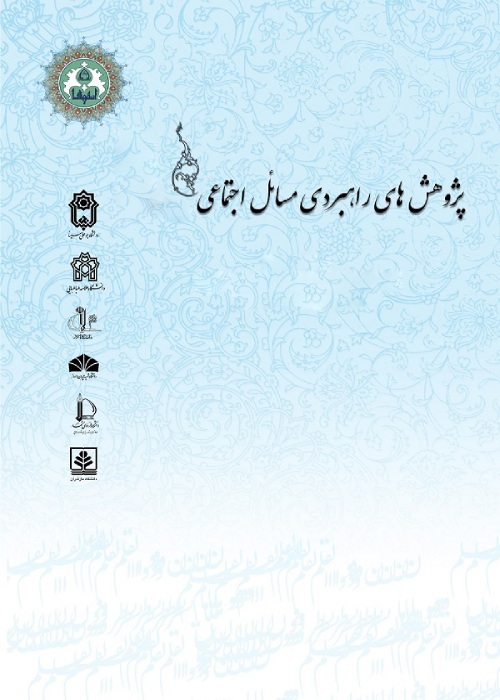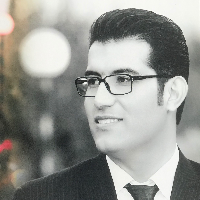Mate Selection Criteria for Short-term and Long-term Relationships: The Role of Gender and Previous Relationships with the Opposite Sex
One of the most important decisions of people in their life span is about spouse selection. Therefore, it seems essential to devote serious attention to premarital criteria for choosing a spouse to prevent marriage burnout. Adopting inappropriate criteria for spouse selection can be a cause of marriage burnout and a gradual decline in marital life. Thus, to prevent marriage burnout, premarital criteria for choosing a spouse should be necessarily observed (Li & Kenrick, 2006, 469(. Research findings on spouse selection are principally interpreted from an evolutionary perspective. In the late 80s and 90s, evolutionary psychologists) Buss & Barnes, 1986:566; Buss, 1985:50; Buss, 1989:10) extensively studied sexual differences in terms of spouse selection. Such efforts built a wide research foundation that is focused on criteria for choosing spouse and attraction and is regarded as a crucial part of evolutionary psychology (Webster, Jonason & Schember, 2009:360; Webster, 2007:89). According to the evolutionary model of sexual strategies theory, differences peculiar to each sex in light of time and energy that parents dedicate for their children (Trivers, 1972:140) lead to such distinctions in spouse selection. Concerning assortative mating, David Buss (1998:406) argues that we never choose our mate randomly. Our mating is strategy-based and these strategies are designed in a special way that these strategies help us solve fundamental problems to have a successful spouse selection. The people who were not able to mate successfully in the evolutionary past are not our ancestors. All of us are the result of a continuous ancestral line in which our forefathers competed successfully for their preferred mate, attracted mates who were valuable in terms of reproduction, and kept them insofar as it led to reproduction. Our ancestors beat their interested competitors and solved the problems which impeded their successful reproduction.
The statistical population of this study comprised of all male and female students of Kurdistan University. Cluster sampling was used as the sampling method. Among the colleges, 5 colleges were randomly selected and in each college, 5 classes were randomly chosen. Then, 600 questionnaires were distributed among the students, of which 486 questionnaires were filled out. In this study, 229 participants were male and 257 females. The research tool was the preference criteria of spouse selection inventory (PCSS). This questionnaire was developed by Refahi, Sanaie, Shafi Abadi, and Sharifi (2010: 28). It consisted of 22 criteria for spouse selection that examined two categories of criteria for spouse selection. In the research carried out by Refahi et al. (2010), the overall coefficient alpha of the questionnaire was 0.88. In the present study, Cronbach's alpha was 0.74 for spouse selection criteria and 0.9 for the opposite sex friend selection criteria.
Concerning the obtained results, the overall average of criteria in men is higher than women and it means that women are more particular about spouse selection and act more obsessively. These findings are in agreement with the sexual strategies theory in terms of women's particularity in comparison to men (Buss & Barnes, 1986; Buss & Schmitt, 1993(. Based on Findings, the first criterion for men and the second criterion for men for spouse selection is love and affection (intimacy). It implies that kindness, intimacy, and passion are among the most important criteria for spouse selection, which is line with the findings of Schwarz and Hassebrauck (2012) in Germany, Chen et al. (2015) in the USA and China, and Gholami et al. (2016) in Iran. Intimacy makes up the essence of love and is one of the elements of a love triangle from Sternberg's viewpoint, who defines it as an emotion which is a sign of closeness (Sternberg, 1987). The degree of love at the starting point of marriage has great importance for the couple's adaptability and satisfaction (Dinna, 2005(. Consequently, it can be assumed that love is a vital element in marriage (Rajabi, Abbasi, & Shamooni Ahwazi, 2015). However, the investigation of findings demonstrates that the girls without the experience of extramarital relationships do not prioritize love and affection (intimacy) for short-term opposite-sex partner selection. It signifies that girls who have not experienced any forms of emotional intimacy with the opposite sex, do not look out for emotional intimacy and closeness if it comes to choose someone for short-term relationships. This is not the case for boys and love and affection are the first criteria for them, even without the experience of premarital relationships. Although it was expected that love and affection should have taken on major importance, they were not among the first five criteria for the girls without the experience of relationships with the opposite sex. It seems that this finding cannot signify that girls do not care about intimacy and love in relationships, but the finding might imply that as they have not experienced relationships with the opposite sex, thinking about loving someone for a short time is meaningless and irrelevant. Nevertheless, since the social conditions differ for boys, they are freer in commenting on girls, even without having any experiences of relationships, and easily state that their priorities for short-term relationships are love and affection.
- حق عضویت دریافتی صرف حمایت از نشریات عضو و نگهداری، تکمیل و توسعه مگیران میشود.
- پرداخت حق اشتراک و دانلود مقالات اجازه بازنشر آن در سایر رسانههای چاپی و دیجیتال را به کاربر نمیدهد.



